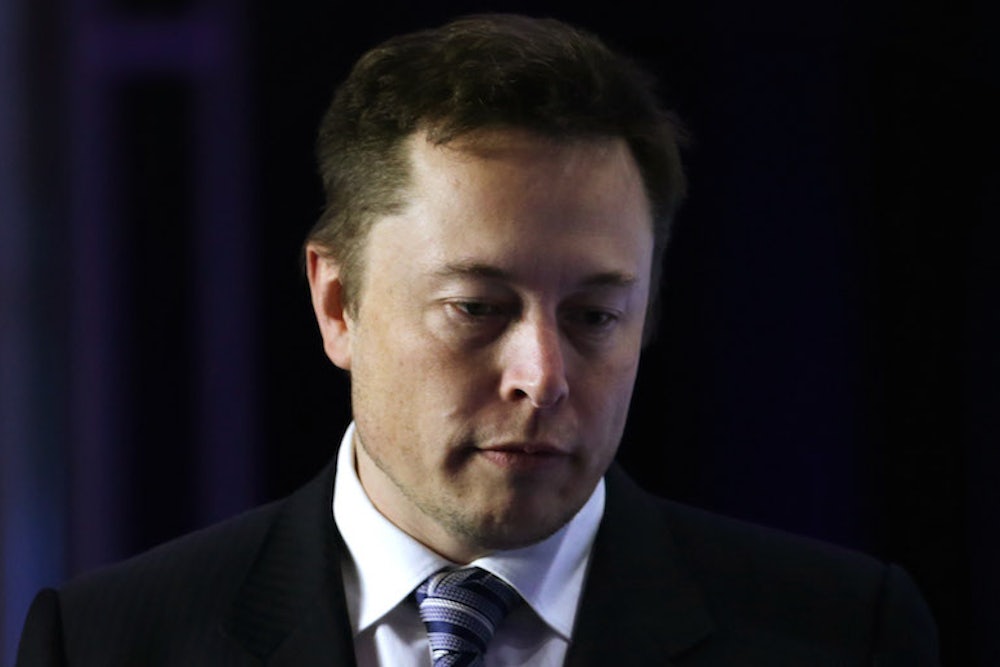It’s a funny thing about sanctions: While detractors have been warning that implementing them against Russia can backfire on the implementors, it turns out that there are also unintended benefits for some American companies.
Take for example Space Exploration Technologies, also known as SpaceX. Founded by South African web mogul Elon Musk in 2002, the California-based company makes launch vehicles—that is, rockets to launch things like satellites into space. There are squillions of dollars in it, both in the commercial and government contract sectors. SpaceX has been doing brisk business lobbing commercial satellites into space, but when it comes to competing for government contracts, SpaceX is the new kid on the block, competing against the well-connected, revolving-door behemoth in town: United Launch Alliance (ULA), a joint venture by Boeing and Lockheed that has tens of billions of dollars of contracts to launch military and surveillance satellites into space for the Air Force.
A few years ago, SpaceX got shut out of the bidding and each of its protests against the no-bid contracts has been shot down. And despite Senator John McCain’s constant protests that these no-bid contracts smacked of “cronyism,” it seemed SpaceX had no chance to feed at the Pentagon trough.
Until Vladimir Putin invaded Ukraine and snapped up Crimea. That’s when the U.S. imposed sanctions on some of Putin’s croniest cronies, including Dmitry Rogozin, a deputy prime minister. SpaceX, which has no shortage of “communications experts” working on their problem in Washington, seized on the opportunity and they are now busily connecting the dots for anyone who will care to listen.
Among Rogozin’s responsibilities is overseeing the Russian aerospace industry—on which ULA (SpaceX’s chief competitor) is reliant. To get U.S. Air Force communications satellites into space, ULA launches them on its Atlas V rockets, which it can’t build without the RD-180 engine, which, in turn, is manufactured exclusively in Russia. The company that makes the RD-180 is called NPO Energomash, and while it is not directly owned by Rogozin, it is part of the aerospace industry for which he is responsible. And Rogozin was sanctioned by the U.S. Treasury back in March.
The U.S. has not introduced sectoral sanctions that would forbid doing business with entire blocks of the Russian economy, and ULA’s contract with Energomash does not fall under the purview of either round of U.S. sanctions against Russia. That is, technically, ULA buying Russian rocket engines for an estimated 12 million tax dollars a pop in order to launch sensitive Air Force equipment into space does not violate the new sanctions regime, but it sure doesn’t look great.
SpaceX has been taking full advantage of the chill and pressing the case that the Air Force should not be funneling the money of U.S. taxpayers to a hostile government. It should be done, SpaceX has argued, by an American company with a wholly American-made product. For example, SpaceX. (Or at the very least, SpaceX has argued, allow SpaceX and its line of Falcon rockets to compete with ULA for the contracts.)
On April 28, for instance, SpaceX filed yet another protest in the U.S. Court of Federal Claims. “The majority of … launches are performed by ULA's Atlas family of launch vehicles, which use the RD-180 rocket engine. The RD-180 is made in Russia by NPO Energomash, which is owned and controlled by the Russian government,” SpaceX wrote in their claim. “The Russian space and defense industries are led by Dmitry Rogozin, the deputy prime minister of Russia. Mr. Rogozin is on the United States' sanctions list as a result of Russia's annexation of the Crimea. In other words, under the ULA Contract, the Air Force is sending millions of dollars directly to an entity controlled by Russia and to an industry led by an individual identified for sanctions.”
On May 1, SpaceX won its first victory when a federal judge issued a temporary injunction prohibiting ULA from buying rocket engines from Energomash due to “the public interest and national defense and security concerns.”
The injunction was later lifted because officials from Commerce, State, and Treasury all assured the judge that the contract with Energomash doesn’t violate the sanctions regime.
Ironically, Rogozin himself became SpaceX’s savior. On Tuesday, he announced something that even Musk's army of D.C. lobbyists couldn't pull off: Russia, he said, would bar the U.S. from using the RD-180, and would halt U.S.-Russian cooperation on the International Space Station in 2020. Until now, the Space Station was one thing that both governments have tried to shelter from their worsening relations. No more. And no more fancy rocket engines for your Atlas Vs. The Pentagon has said it has a two-year supply to tide it over, but after that, who knows.
Now, can you think of any deep-pocketed, space-obsessed savants who might step in to fill the gap?
